On the Path to Peace
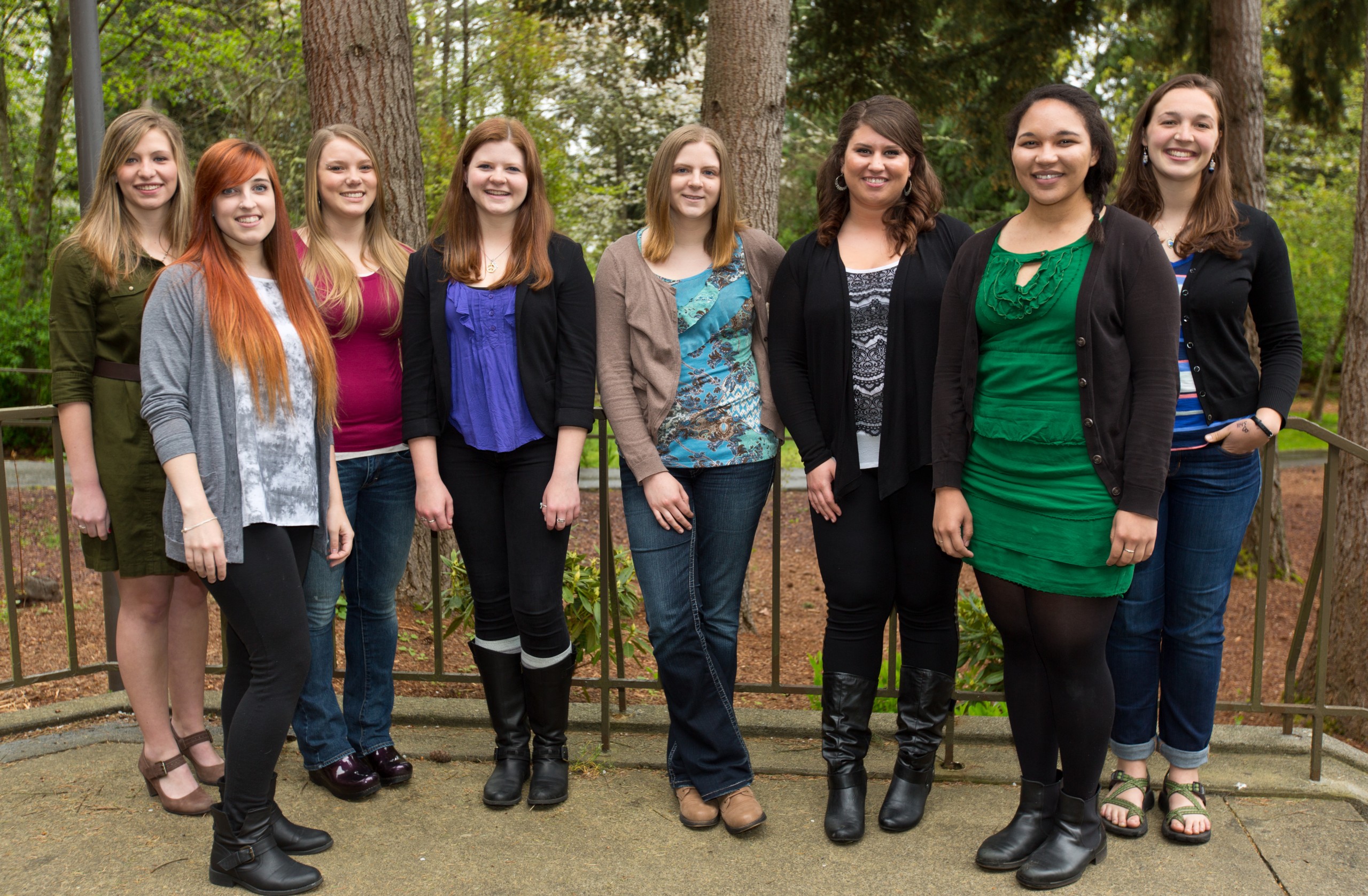
Communication Professor Amanda Feller’s peace-building cohort, all graduating in 2014, comes together at PLU. From left: Caitlin Zimmerman, Lauren Corboy, Sydney Barry, Kendall Daugherty, Rachel Samardich, Rachel Espasandin, Jessica Sandler and Anna McCracken. (Photo: John Froschauer/PLU)
Eight Graduating Women Give Peace a Chance With True World-Changing Potential
When a Miss America contestant solemnly declares her platform is “world peace,” it tends to sound a teensy bit clichéd. But when Associate Professor of Communication Amanda Feller brings eight inspiring students into one cohort with true peace-building potential—suddenly anything sounds possible.
As an advisor and mentor, Feller has worked on dialogue and peace-building with 2014 Pacific Lutheran University graduates Sydney Barry, Lauren Corboy, Kendall Daugherty, Rachel Espasandin, Anna McCracken, Rachel Samardich, Jessica Sadler and Caitlin Zimmerman throughout their impressive college careers.
“From the moment they arrived at PLU, they all were doing this work, whether in social justice or inequality and inequity,” Feller said. “They’ve all crisscrossed. Most have done a full semester abroad; almost all are involved in the Network for Peacebuilding and Conflict Management. Students who do that work come my way.”
Together the cohort incorporates the essential role of communication in understanding the nature of conflict and of peace, Feller said; individually each student has taken a unique path, exploring varying majors, Study Away programs, fieldwork, service, training and hands-on facilitation.
“These eight women are special given their capacities for peace-building and the strength gained from working together,” Feller said. “They also are special because they possess a combination of traits vital to this work: confidence, drive, empathy, flexibility, interdisciplinary knowledge, communication competence and patience.”
Feller calls these eight women the Cohort of Awesome. But they all insist they’re simply part of a larger campus mission.
We’ve talked to all of them. We’re going with Awesome.
NPCM: PLU’s Service Club of the Year
PLU’s Network for Peacebuilding and Conflict Management (NPCM), a group of students, staff and faculty dedicated to promoting peace, creative conflict-management skills and community relationships, received the university’s 2014 Service Club of the Year Award.
Founded in late 2012 by Rachel Samardich ’14, NPCM was recognized for its commitment to peacebuilding.
“It’s been just a short time from being nonexistent to winning an award,” said PLU Associate Professor of Communication Amanda Feller, the network’s faculty advisor.
Group members have organized multiple on-campus events, including the first-ever PLU Community Dialogue Day in late 2012; observances in Fall 2013 of the International Day of Peace and International Conflict Resolution Day; and a May 1 event titled “The Rwanda Genocide, Then and Now: A Hotel Rwanda Survivor Tells His Story.”
Samardich did much of the legwork involved in creating the network, Feller said. “She really wanted to pull together community partners, students and faculty in peace-building, but we didn’t have an umbrella organization. She said let’s call it a network—not just because of what it is, but because that’s the mission.”
SYDNEY BARRY
Hometown: Helena, Mont.
Major: Communication/Women’s & Gender Studies. 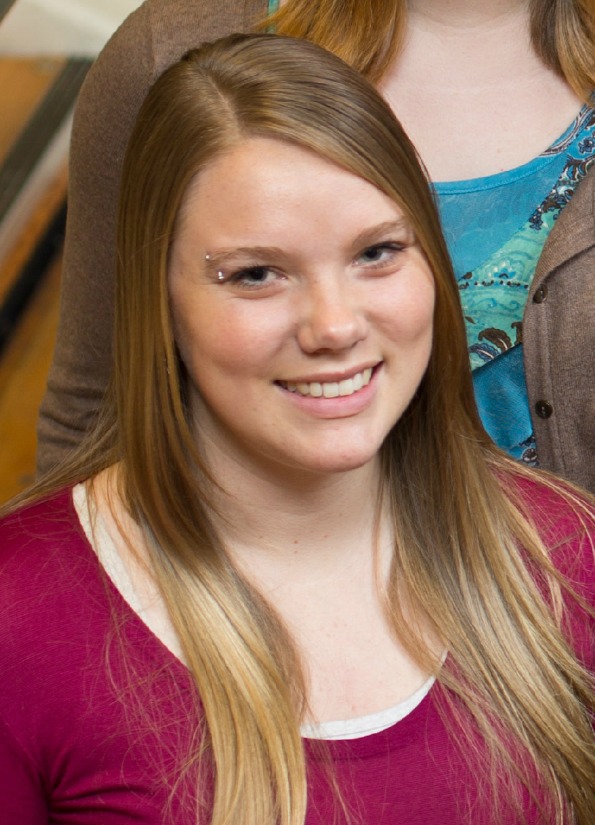
Graduation: May 2014, magna cum laude.
Peace-building experience: Barry was inducted into Lambda Pi Eta, the Communication Honor Society, and completed Basic Mediation Training through the Pierce County Center for Dispute Resolution. She is now participating in the full year-long practicum to become a certified mediator.
Her peace philosophy: “I’ve always been interested in conflict and communication—interpersonally and globally—how conflict comes about and how we can learn to better handle it,” Barry said. “We don’t listen enough. There’s a lot of power in dialogue and negotiation, but not enough time devoted to it.” Barry is inspired by the work of Dr. Steinar Bryn—a six-time Nobel Peace Prize nominee who once taught at PLU, and who comes up in every conversation with every cohort member. “He brought groups together from Serbia and Croatia after that conflict, and what was really powerful was the idea of storytelling—people just want to be heard and feel that their beliefs and experiences matter.”
Post-PLU plans: From her home base of Helena, Mont., Barry plans to work on finishing her mediation training while visiting schools this summer—“I’m thinking about the East Coast,” she said. “Conflict is everywhere, and as a result there are always opportunities for reconciliation and peace-building,” Barry said. “I have realized that wherever I head educationally and professionally, I will be able to apply what I have learned through my classes at PLU.”
LAUREN CORBOY
Hometown: Dallas.
Major: Independent Studies. 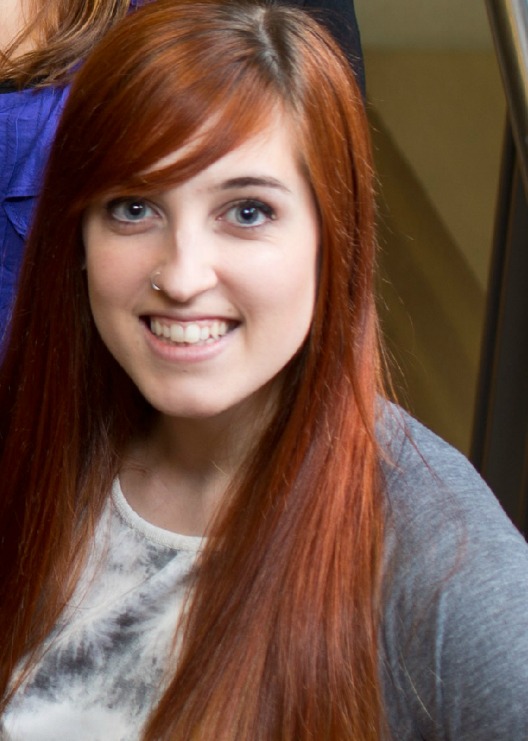
Graduation: Corboy will walk in the May Commencement ceremony and graduate in August.
Peace-building experience: Corboy received a Gates Scholarship that helped fund a J-Term course in Greece detailing the struggle of Jews to integrate into new communities following the Diaspora. She followed this with a semester at Swansea University in Wales, studying the history of war, genocide and efforts to recover from conflict and rebuild communities. She also participated in a semester-long Peace and Conflict Studies program in the Balkans. Feller helped Corboy connect with Bryn and his Nansen Dialogue Network, which led to independent research on interethnic education in post-conflict societies in Srebrenica. The last stop on her international studies tour, supported by a Hansen Memorial scholarship, was a J-Term course led by Feller on intercommunity dialogue in Northern Ireland, which in turn led to a Toward Understanding and Healing Dialogue Certification. All that experience earned her a spot on the panel at PLU’s 2014 Wang Center Symposium on genocide and peace-building, Legacies of the Shoah.
Her peace philosophy: “Genocide is not a sweet, feel-good topic,” Corboy said. “A lot of people might think not anything good can come from discussing it, but the one saving grace is: How do you get past it?” She has one idea: community-building. “When you accept the people around you as kind of an extended family, and define them as community and respect the fact that we all have the same goals—good schools, no drugs, no violence—you can learn to respect people and work together for those.” She’s seen it work on the smallest of scales. “There were kids in Bosnia in a class, and an 8-year-old was curious—‘He kinda looks like me, we like the same soccer player and the same music’—that’s how you move from ignorance and fear, where everyone is a threat. With kids, there’s no personal memory, so curiosity is more powerful than fear.”
Post-PLU plans: Corboy has been accepted into a dual International Masters program at the University of Malta through George Mason University—a master’s of science in Conflict Analysis and Resolution and a master’s of arts in Conflict Resolution and Mediterranean Security. From there, she’d like to work with young people around the world. “It’s a little daunting to think I’m going to go out and stop genocide,” Corboy said. “My responsibility is to keep their stories alive.”
KENDALL DAUGHERTY
Hometown: Portland, Ore.
Major: Political Science and Global Studies with an Anthropology minor.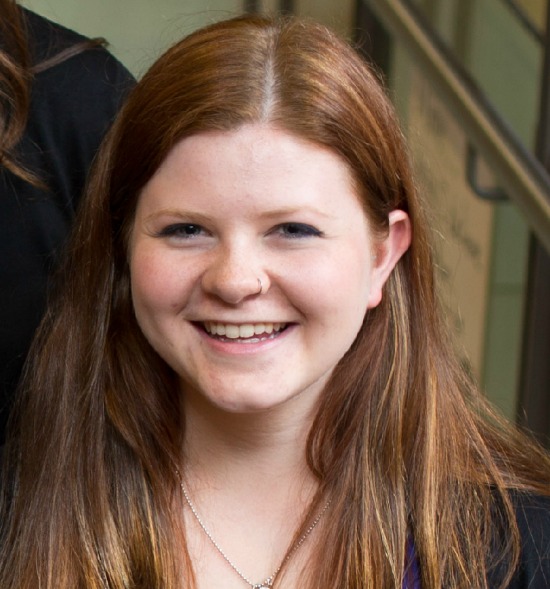
Graduation: December 2014.
Peace-building experience: Daugherty is an International Peer Advisor and a member of the Network for Peacebuilding and Conflict Management. She spent fall of her sophomore year studying Peace and Conflict Studies in Oslo, Norway, as part of PLU’s Gateway program. She also took the J-Term 2014 course in Northern Ireland about dialogue and peace-building post-conflict.
Her peace philosophy: “The biggest challenge to peace is getting people to be willing to come to the bargaining table,” Daugherty said. “They get stuck in beliefs, but we can work together, with open-mindedness.” “Peace-building needs to start with one person, bottom-up. When you get a group of people, like at PLU, you can make a difference by being passionate. PLU does a really good job of promoting international education. It’s essential in peace-building and conflict resolution.”
Post-PLU plans: Daugherty will intern with the American Red Cross this summer in its International Services department, where she’ll help organize and run World Refugee Day, help reconnect families of refugees and educate the community on these issues and International Humanitarian Law. She’s also applying for a 2015 Fulbright Scholarship—“hopefully in Europe”—and will take some time off from school to travel and “recharge her academic battery” before seeking a master’s degree in Conflict Resolution, hopefully in Europe. Eventually, she would love to end up working for the United Nations.
RACHEL ESPASANDIN
Hometown: Vancouver, Wash.
Major: Political Science, with minors in Religion and Conflict Resolution. 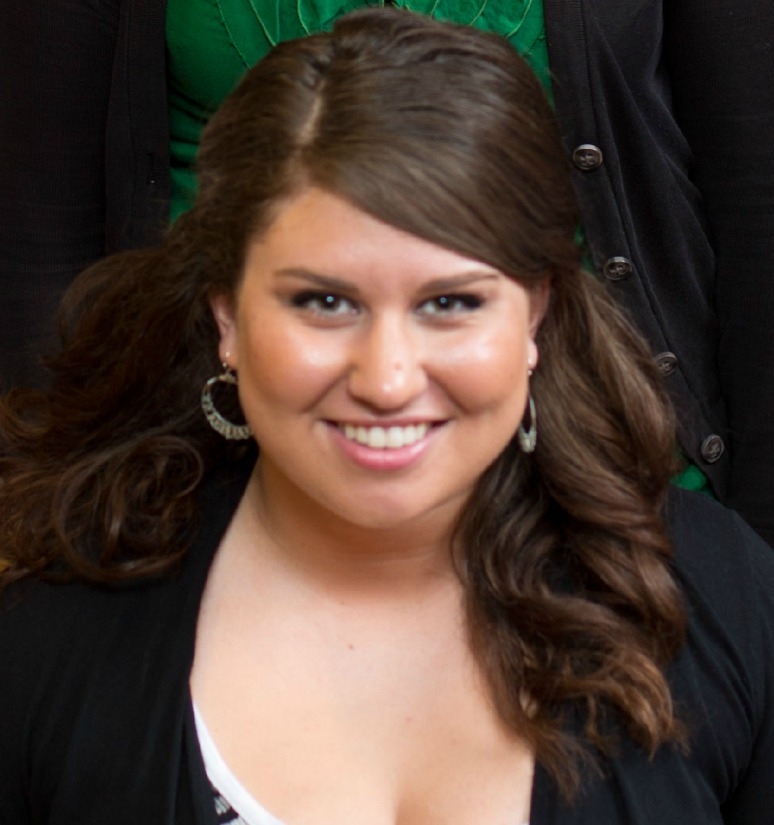
Graduation date: May 2014.
Peace-building experience: Espasandin participated in PLU’s Alternative Spring Break trip to a remote village in Nicaragua, where a team partnered with a nonprofit to install a clean-water well. That might not sound like a typical peace-building activity, but Espasandin says it absolutely is. “A lot of conflict can erupt if there’s not adequate access to food, water or health care—conflict with family, community, government,” she said. Espasandin is vice president of PLU’s Network for Peacebuilding and Conflict Management and has completed three certificates in basic mediation, basic negotiation and peace-building with an emphasis in dialogue. She also traveled with Feller to Northern Ireland on a J-Term Study Away trip.
Her peace philosophy: “Peace-building doesn’t always aim to resolve conflict, but to build relationships after conflict,” she said. “It’s not the absence of conflict but the mitigating of it through relationships.” “I truly believe you have to have peace within yourself to spread peace,” she said. “Not perfection or everything worked out, but I try to practice peace in my own life, keeping a daily routine, working out, alone time, learning to actively listen and keep control.”
Post-PLU plans: Espasandin will continue her studies in International Peace and Conflict Analysis and has been accepted to the graduate program at Portland State University. She sees her life in phases, she said, and hopes her (future) professional experience in government—Europe, the State Department or the U.N.—eventually brings her back to academia, where she’d like to teach. In the immediate future, she and her cohort colleague Samardich are researching the movement of women in peace-building with a focus on Kenya and plan to present their research at graduate conferences during the next academic year.
ANNA McCRACKEN
Hometown: Spanaway, Wash.
Major: Global Studies & Anthropology. 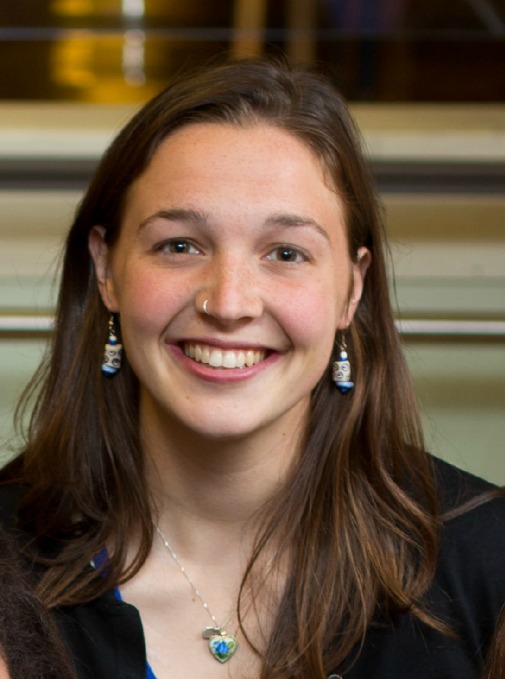
Graduation date: May 2014.
Peace-building experience: McCracken went to Northern Ireland with Feller and Political Science Professor Ann Kelleher for a J-Term course on peace-building and dialogue in 2012. From there, McCracken followed a path of peace, studying social and political transformation in Durban, South Africa; representing PLU as one of two Peace Scholars at the international school in Oslo, Norway; joining PLU’s award-winning Network for Peacebuilding and Conflict Management; and volunteering at the Peace Community Center’s after-school enrichment program in Tacoma.
Her peace philosophy: “You just do the best you can to bring people together with common aspirations to help reach across divides,” she said. “If you look at the big picture too much, you’re going to get overwhelmed.” Overwhelmed would be bad, but discomfort has a crucial place in the peace process, McCracken says—and in life. “I learned at PLU to be comfortable feeling uncomfortable,” she said. “You’re not going to be successful if it’s easy; you’re constantly struggling. If you are doing your best and impacting the life of one person, you’re not feeling comfortable and complacent.”
Post-PLU plans: As the Spring 2014 student Commencement speaker, McCracken will have very little time between adventures: In August, she begins a year-long placement at the Corrymeela Community in Ballycastle, Northern Ireland—one of only 12 volunteers selected worldwide, and the first ever from PLU. Formed in 1965 by the Rev. Dr. Ray Davey and his students, Corrymeela is a community focused on reconciliation, encounter, relationship-building and hope. “They talk about it as a meeting place where people come from a place apart and take it back to their communities,” McCracken said. “The work of Corrymeela is not so much focused on what happens at the center in Ballycastle, but instead on when people are sent out and are empowered to continue this work in their own communities. It really is all about community.”
JESSICA SADLER
Hometown: Mesa, Ariz.
Major: Philosophy and Environmental Studies. 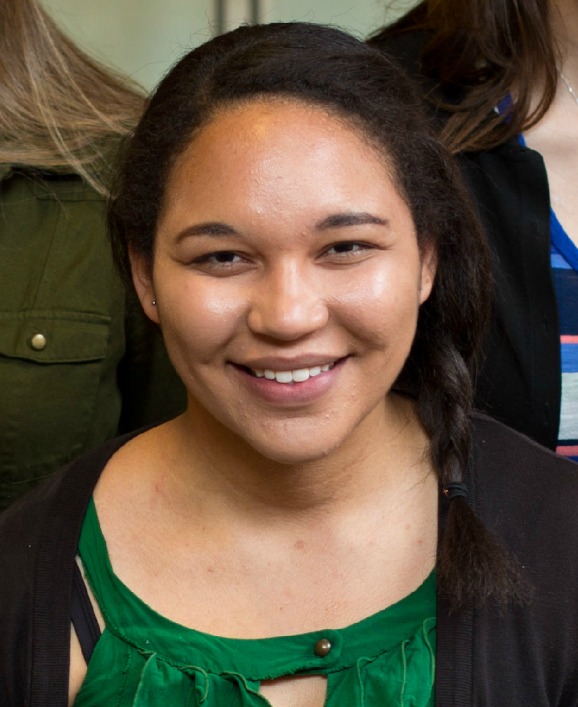
Graduation date: May 2014
Peace-building experience: Sadler studied away in England, Germany, Poland, the Czech Republic and Northern Ireland, where she built relationships with her fellow travelers—and cohort members. “To see common experiences and how beautiful people are—all these girls on the trip—we learned so much about the human condition and how we work with the world. It’s a much deeper connection.” In addition, Sadler explores ethical coffee sourcing and the link between sustainability and social justice through her Sustainability Fellowship.
Her peace philosophy: “Peace starts with intentional engagement with another person,” Sadler said. “It’s hard even here at PLU, where we all have common experience—everyone’s rushing around and there’s no time for intentional listening and engagement. You help yourself as much as the other person by laying aside business and differences—that’s a choice the individual can make.” “World peace is obviously never going to happen, but we can’t be complacent.” she said. “We can call for bigger peace. The goal is to call for world peace, world action. I know I’ve made a difference because I take other people with me in my heart, and they take me.”
Post-PLU plans: Sadler will explore how environmental justice can play a role in the peace process while pursuing a Master’s degree in Peace and Conflict Management at the University of Haifa, Israel, starting in October 2014. She hopes to become an active member of the peace-building community through an internship with an Israeli peace group.
RACHEL SAMARDICH
Hometown: Maple Grove, Minn.
Major: Individualized, Peace & Justice Studies. 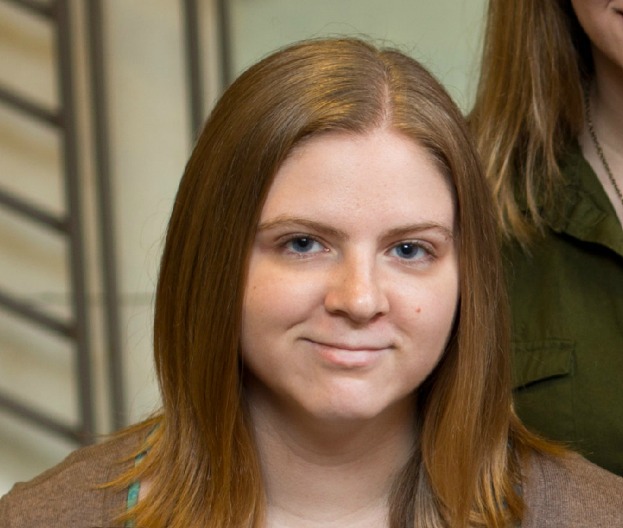
Graduation date: May 2014.
Peace-building experience: During her sophomore year, Samardich created and petitioned for an individualized, interdisciplinary major in Peace and Justice Studies. That same year, she studied away in Oaxaca, México, and examined indigenous responses to oppression and the resulting grassroots movements that spurred homegrown solutions to endemic problems. Next she traveled to Northern Ireland to study the Troubles, the peace process, grassroots organizing and dialogue with Feller and Kelleher. She received certification in dialogue techniques from the Junction as part of its Toward Understanding and Healing program. As a junior she worked as a student facilitator on an event that brought together PLU community members and Parkland youth to meet, talk about personal experiences and begin the process of building relationships and understanding others. She founded the Network for Peacebuilding and Conflict Management and now is its student president. In the spring of 2013 she received a Kurt Mayer Holocaust Studies Fellowship and spent the summer conducting research on issues in Israel/Palestine; she was accepted to participate in a peace conference hosted by the Kroc Institute at the University of Notre Dame to present her research.
Her peace philosophy: “It all boils down to relationships and a willingness to build and maintain them,” Samardich said. “What’s important, and what’s missing, is bringing together communities, societies and individuals. You have to start with trust and a willingness to take risks.” And it starts young. “When we think of peace agreements we think of adults shaking hands,” she said. “But they’re really shaking hands for their kids’ futures. We need to look at children as active participants in the peace process and how they’re being active in their future as opposed to what’s been done.” “It’s not going to come from one person or one organization; it’s going to come from everyone. We have to start trusting each other and put ego aside.”
Post-PLU plans: Samardich will spend the summer working on the research project on women in peace-building with NPCM vice president Espasandin. Samardich also plans to gain hands-on experience in mediation techniques through the Pierce County Center for Dispute Resolution, in addition to volunteering at local organizations and working. She will apply for a Fulbright and to graduate school over the next two years. “My future holds plenty of opportunities for me to tap into all of my passions in meaningful ways,” she said. “I wouldn’t be where I am today without the support of PLU’s dedicated faculty, particularly Dr. Amanda Feller and Dr. Beth Kraig, both of whom have supported me tremendously as a student and a person. … That’s what makes PLU great and what makes Lutes outstanding individuals—there’s a real connection between faculty and staff within the PLU culture to not only educate for careers, but to educate for life through the development of hard and soft skills. I owe a lot to the PLU community and hope to be able to give back in some way in the future.”
CAITLIN ZIMMERMAN
Hometown: Wilsall, Mont.
Major: Communication/Conflict Management. 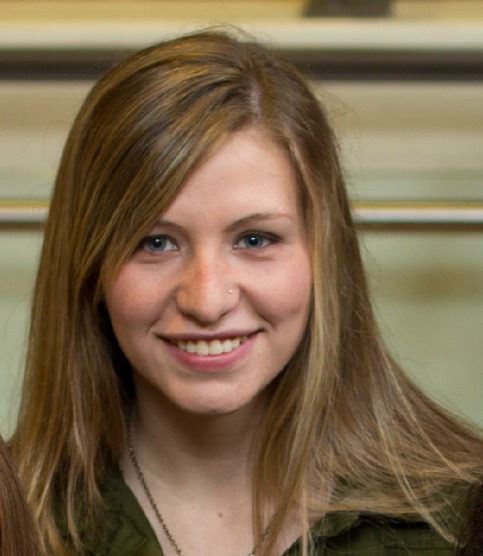
Graduation date: May 2014
Peace-building experience: In 2012, Zimmerman studied away in South Africa, where she focused on the effects of community-building on the lives of women. On a semester-long comparative study, she researched how communities managed conflict related to issues of water in informal settlements in India, Senegal and Argentina. She interned at a law firm and mediation center and became a certified mediator. In Northern Ireland, she became a trained dialogue facilitator and studied the peace-building process.
Her peace philosophy: “Lead by example,” Zimmerman said. “People are much more willing to listen when they’ve been listened to … When people are treated as complete human beings, it’s going to change their mentality—peace begets itself.”
Post-PLU plans: Zimmerman has been accepted into the University of Montana law school but is deferring admission for a year. She leaves Aug. 20 for Africa after being accepted into the ELCA’s Young Adults in Global Mission program, which places volunteers in service areas with congregations around the world. “The goal is to develop relationships, not a missionary model,” she said. “By accompanying a congregation in the community you’re serving, it’s based on human interaction: ‘All right. I’m here. What do you want me to do?’” After 12 months of service, she plans to attend law school and focus on issues of water scarcity and natural resource management. “Working on these issues with a peace-building mindset will enable me to serve people about resources as well as about community to decrease the division, hostility and discord that resource scarcity can produce,” she said.


